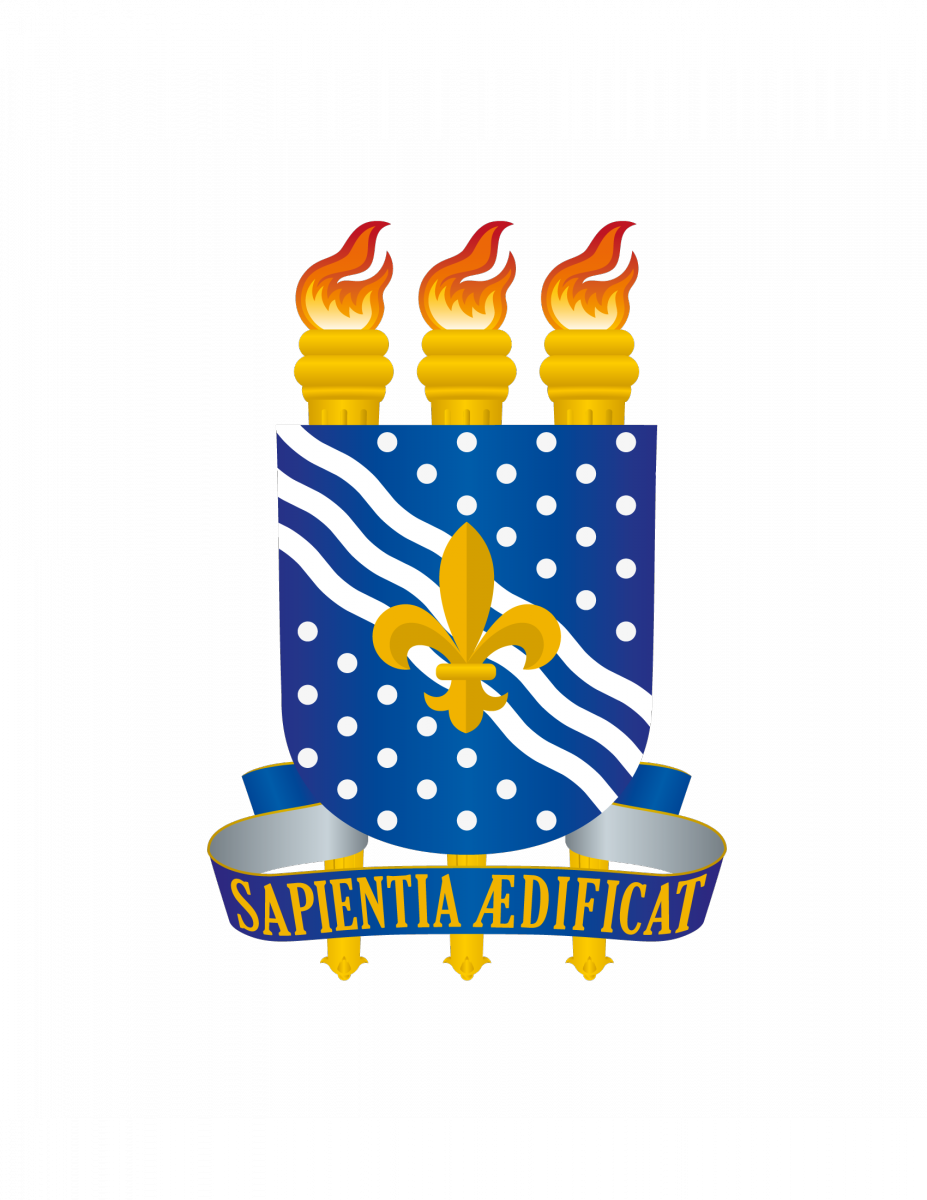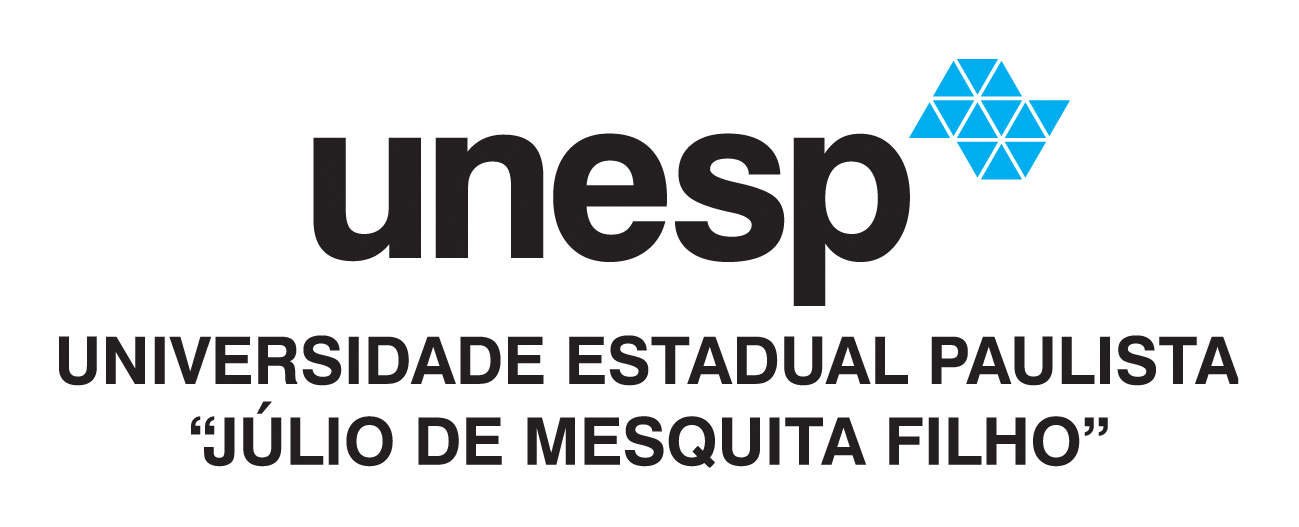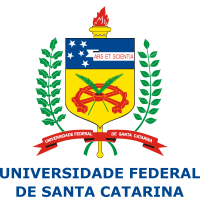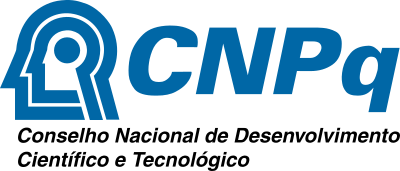Information, Data and Technology
Guilherme Ataíde Dias
Federal University of Paraíba (UFPB) | guilhermeataide@ccsa.ufpb.br | https://orcid.org/0000-0001-6576-0017 | https://lattes.cnpq.br/9553707435669429
Undergraduate in Computer Science from the Federal University of Paraíba UFPB Campus II (1990), Bachelor in Law by the University Center of João Pessoa UNIPE (2010), Master in Organization & Management by Central Connecticut State University? CCSU (1995), PhD in Information Science (Communication Sciences) at the University of São Paulo? USP (2003) and Post-Doctor by UNESP (2011). He is currently Associate Professor III at the Federal University of Paraíba, where he holds a degree in Information Science. He is involved with Post-Graduation through the Post-Graduate Program in Information Science and Postgraduate Program in Administration, both of UFPB. Has research interest in the following themes: Knowledge Representation; Information Architecture; Information security; Information and Communication Technologies; Health Information; Social networks; Free software; Law, Ethics and Intellectual Property in Cyberspace; Scientific Data Management; Legal Information; He is currently Research Productivity Scholar (PQ) at CNPq.
Moisés Lima Dutra
Federal University of Santa Catarina (UFSC) | moises.dutra@ufsc.br | https://orcid.org/0000-0003-1000-5553 | https://lattes.cnpq.br/1973469817655034
Professor, Federal University of Santa Catarina, Department of Information Science. PhD in Computing from the University of Lyon 1, France (2009). Master in Electrical Engineering, subarea Automação e Sistemas (2005) and Bachelor in Computing (1998) from the Federal University of Santa Catarina. His current lines of research are related to Applied Artificial Intelligence (Machine Learning, Deep Learning, Semantic Web, Linked Data) and Data Science (Big Data, IoT). It is linked to the research group ITI-RG (Intelligence, Technology and Information - Research Group).
Fábio Mosso Moreira
São Paulo State University (UNESP) | fabio.moreira@unesp.br | https://orcid.org/0000-0002-9582-4218 | https://lattes.cnpq.br/1614493890723021
Undergraduate degree in Business Administration from the Faculty of Sciences and Engineering (UNESP / Tupã). Master degree in Information Science - (UNESP / Marília). PhD student in the Graduate Program in Information Science (UNESP / Marília). Member of the Research Group - GPNTI (UNESP / Marília) and GPTAD (UNESP / Tupã). Collaborator of the Project Digital Skills for Family Farming (CoDAF). Content editor of the Electronic Journal Digital Skills for Family Farming (RECoDAF). Professional Technical Skill in Informatics from ETEC Massuyuki Kawano - Centro Paula Souza de Tupã. Professional experience in the ERP Information Systems for Logistics Operations. Works with research in Information Science, studying the use of digital resources for access to government data of Public Policies in the context of the small farmer.
Fernando de Assis Rodrigues
Federal University of Pará (UFPA) | fernando@rodrigues.pro.br | https://orcid.org/0000-0001-9634-1202 | https://lattes.cnpq.br/5556499513805582
Professor at Federal University of Pará. Ph.D. and M.S. in Information Science, Post-bachelor in Internet Systems and Bachelor of Science in Information Systems. Most of his experience is based on works developed as a Full Stack Developer and Database administrator, especially with Python, Java and PHP programming languages, as well as MySQL, MariaDB, SQLite3 and PostgreSQL databases. Also, he lectured classes related to the context of Computer Science to undergraduate and graduate students at UNESP. Currently, He workd as a postdoc researcher at UNESP labs, working in data studies.
Ricardo César Gonçalves Sant'Ana
São Paulo State University (UNESP) | ricardo.santana@unesp.br | https://orcid.org/0000-0003-1387-4519 | https://lattes.cnpq.br/1022660730972320
Associate Professor at the Paulista State University - UNESP, Faculty of Sciences and Engineering - FCE, Campus de Tupã, on an exclusive dedication, where he is Chairman of the Monitoring and Evaluation Committee of the Graduate Courses - CAACG, Local Coordinator of the Center for Studies and Pedagogical Practices - CENEPP and Local Ombudsman. Professor of the Post-Graduate Program in Information Science of the Paulista State University, Marília Campus. Graduated in Mathematics and Pedagogy, Master in Information Science (2002), Doctorate in Information Science (2008) and Freelance in Management Information Systems by UNESP (2017). He has specialized in Object Orientation (1996) and Management of Information Systems (1998). Ad hoc advisor of periodicals and development agencies. Member of the Research Group - New Technologies in Information GPNTI-UNESP. Has experience in the area of ??Computer Science, currently conducts research focused on: information science and information technology, investigating issues related to the Data Life Cycle, Transparency and Information Flow in Productive Chains. He worked as a professor at Faccat Faculdade de Ciências Contábeis e Administração de Tupã, where he coordinated a course of Administration with Qualification in Systems Analysis for ten years and the course of Licenciatura in Computing. He worked in the private sector as a consultant, integrator and researcher of new information technologies from 1988 to 2004.
Organizators
Guilherme Ataíde Dias
Federal University of Paraíba (UFPB) | guilhermeataide@ccsa.ufpb.br | https://orcid.org/0000-0001-6576-0017 | https://lattes.cnpq.br/9553707435669429
Undergraduate in Computer Science from the Federal University of Paraíba UFPB Campus II (1990), Bachelor in Law by the University Center of João Pessoa UNIPE (2010), Master in Organization & Management by Central Connecticut State University? CCSU (1995), PhD in Information Science (Communication Sciences) at the University of São Paulo? USP (2003) and Post-Doctor by UNESP (2011). He is currently Associate Professor III at the Federal University of Paraíba, where he holds a degree in Information Science. He is involved with Post-Graduation through the Post-Graduate Program in Information Science and Postgraduate Program in Administration, both of UFPB. Has research interest in the following themes: Knowledge Representation; Information Architecture; Information security; Information and Communication Technologies; Health Information; Social networks; Free software; Law, Ethics and Intellectual Property in Cyberspace; Scientific Data Management; Legal Information; He is currently Research Productivity Scholar (PQ) at CNPq.
Moisés Lima Dutra
Federal University of Santa Catarina (UFSC) | moises.dutra@ufsc.br | https://orcid.org/0000-0003-1000-5553 | https://lattes.cnpq.br/1973469817655034
Professor, Federal University of Santa Catarina, Department of Information Science. PhD in Computing from the University of Lyon 1, France (2009). Master in Electrical Engineering, subarea Automação e Sistemas (2005) and Bachelor in Computing (1998) from the Federal University of Santa Catarina. His current lines of research are related to Applied Artificial Intelligence (Machine Learning, Deep Learning, Semantic Web, Linked Data) and Data Science (Big Data, IoT). It is linked to the research group ITI-RG (Intelligence, Technology and Information - Research Group).
Fábio Mosso Moreira
São Paulo State University (UNESP) | fabio.moreira@unesp.br | https://orcid.org/0000-0002-9582-4218 | https://lattes.cnpq.br/1614493890723021
Undergraduate degree in Business Administration from the Faculty of Sciences and Engineering (UNESP / Tupã). Master degree in Information Science - (UNESP / Marília). PhD student in the Graduate Program in Information Science (UNESP / Marília). Member of the Research Group - GPNTI (UNESP / Marília) and GPTAD (UNESP / Tupã). Collaborator of the Project Digital Skills for Family Farming (CoDAF). Content editor of the Electronic Journal Digital Skills for Family Farming (RECoDAF). Professional Technical Skill in Informatics from ETEC Massuyuki Kawano - Centro Paula Souza de Tupã. Professional experience in the ERP Information Systems for Logistics Operations. Works with research in Information Science, studying the use of digital resources for access to government data of Public Policies in the context of the small farmer.
Fernando de Assis Rodrigues
Federal University of Pará (UFPA) | fernando@rodrigues.pro.br | https://orcid.org/0000-0001-9634-1202 | https://lattes.cnpq.br/5556499513805582
Professor at Federal University of Pará. Ph.D. and M.S. in Information Science, Post-bachelor in Internet Systems and Bachelor of Science in Information Systems. Most of his experience is based on works developed as a Full Stack Developer and Database administrator, especially with Python, Java and PHP programming languages, as well as MySQL, MariaDB, SQLite3 and PostgreSQL databases. Also, he lectured classes related to the context of Computer Science to undergraduate and graduate students at UNESP. Currently, He workd as a postdoc researcher at UNESP labs, working in data studies.
Ricardo César Gonçalves Sant'Ana
São Paulo State University (UNESP) | ricardo.santana@unesp.br | https://orcid.org/0000-0003-1387-4519 | https://lattes.cnpq.br/1022660730972320
Associate Professor at the Paulista State University - UNESP, Faculty of Sciences and Engineering - FCE, Campus de Tupã, on an exclusive dedication, where he is Chairman of the Monitoring and Evaluation Committee of the Graduate Courses - CAACG, Local Coordinator of the Center for Studies and Pedagogical Practices - CENEPP and Local Ombudsman. Professor of the Post-Graduate Program in Information Science of the Paulista State University, Marília Campus. Graduated in Mathematics and Pedagogy, Master in Information Science (2002), Doctorate in Information Science (2008) and Freelance in Management Information Systems by UNESP (2017). He has specialized in Object Orientation (1996) and Management of Information Systems (1998). Ad hoc advisor of periodicals and development agencies. Member of the Research Group - New Technologies in Information GPNTI-UNESP. Has experience in the area of ??Computer Science, currently conducts research focused on: information science and information technology, investigating issues related to the Data Life Cycle, Transparency and Information Flow in Productive Chains. He worked as a professor at Faccat Faculdade de Ciências Contábeis e Administração de Tupã, where he coordinated a course of Administration with Qualification in Systems Analysis for ten years and the course of Licenciatura in Computing. He worked in the private sector as a consultant, integrator and researcher of new information technologies from 1988 to 2004.
Multicriteria methods to aid the decision-making process on real estate projects using BIM models
Pages: 225 - 239
Authors
Bruno Cesarino Soares
Federal University of Minas Gerais (UFMG) | brunocesarino@hotmail.com | https://orcid.org/0000-0002-4122-2051 | https://lattes.cnpq.br/8435050057210820
Graduation in Civil Engineering from the Federal University of Minas Gerais (2003), graduation in Information Systems from the Federal University of Minas Gerais (2014) and master's degree in Structural Engineering from the Federal University of Minas Gerais (2006). He is currently a judicial analyst - Regional Labor Court of the 3rd Region and researcher / collaborator of the Federal University of Minas Gerais. He has experience in the area of Computer Science, with emphasis on Information Systems, working mainly on the following topics: building information modeling (bim), construction information modeling (bim), engineering applied computation, structural analysis and assisted design or drawing by computer (cad).
Rogério Amaral Bonatti
Federal University of Minas Gerais (UFMG) | rbonatti@gmail.com | https://lattes.cnpq.br/2379698579270699
PhD student and Master in Information Science by PPGCI / ECI - UFMG (2015), Bachelor in Librarianship by UFMG (2010); Specialist in Information Security Management (2006) and Bachelor in Computer Science (2005) from FUMEC University. He is a researcher in the areas of Information Science, Information Technology, Administration and related fields. Professor of Higher Education and Technologist (2nd Degree) taught classes for Engineering (CEFET), Administration, Systems Analysis and IT Security (Unipac) courses, among others. Experience in delivering business training training. He has experience in the area of Computer Science in the areas of Projects, Analysis and Development, Modeling. Collaborator in the definition of Controlled Terms for the System used by PBH. Collaborator for FJP archive organization. Organization of Collections, Library Activity, Information Systems, Information Retrieval, Strategic Planning and Project Management are continuous interests of practices and learning.
Renata Maria Abrantes Baracho
Federal University of Minas Gerais (UFMG) | renatabaracho@eci.ufmg.br | https://lattes.cnpq.br/4218954956709188
Professor at the Federal University of Minas Gerais - UFMG, Graduate Program in Management and Organization of Knowledge? PPGGOC-UFMG, Postgraduate Program in Built Environment and Sustainable Heritage of the School of Architecture-UFMG. PhD in Information Science from UFMG with PDEE at The Pennsylvania State University, Master in Computer Science DCC-UFMG, has a degree in Architecture and Urbanism-UFMG and a degree in Computer Science? PUC Minas. President of the National Association of Research and Post-Graduation in Information Science - ANCIB (2014-2016). Member of International Institute of Informatics and Systems - IIIS - International Federation for Systems Research - IFSR, IEEE, ICOM, ICOMOS. He develops researches in the area of Smart Cities, Smart City, Smart Building, Building Information Modeling / BIM, Information Science, with emphasis on information retrieval and representation, information systems, modeling, computer graphics.
Resumo
O presente trabalho apresenta a utilização de informações obtidas em modelos de informações da construção (Building information Modeling – BIM) e a avaliação de empreendimentos imobiliários, em uma estrutura multicritérios. As informações sobre os possíveis projetos de construção, reforma, ampliação, aquisição, ou aluguel de edificações são utilizadas para viabilizar um processo de tomada de decisão. Os modelos funcionam como uma base para a representação digital de dados ou informações de uma construção e trazem diversas possibilidades de análise. Assim, a análise multicritério classifica os empreendimentos imobiliários representados como modelos BIM. A hierarquização do problema envolve as relações entre metas, critérios que expressam metas e alternativas. A análise comparativa entre os critérios considerados e a interação com os elementos que compõem os modelos de projetos de construção proporcionou a execução prática de um problema que interliga dados de ambientes distintos com um método de análise multicritérios. A avaliação de viabilidade do processo construtivo reforça a necessidade de expansão da metodologia e da amostra, para se definir os elementos que compõem a tomada de decisão no setor de empreendimentos imobiliários.
Palavras-chave: Métodos Multicritérios. Analytic Hierarchy Process (AHP). Modelagem de Informações da Construção. Building Information Modeling (BIM).
Abstract
This work presents the development of a multicriteria method to evaluate real estate projects based on information retrieved from Building Information Modeling (BIM). Information on possible construction, renovation, expansion, acquisition or rental of buildings is used to enable a decision-making process. The models work as a basis for the digital representation of data or information of a construction and bring diverse possibilities of analysis. Thus, the proposed method classifies the real estate ventures represented as BIM models. Complex problems in a hierarchical structure involve relationships between goals, criteria that express goals, and alternatives. Given this complexity, the proposed analysis method evaluates hierarchical structures expressed from objectives, or criteria, and alternatives. Thus, the Analytic Hierarchy Process (AHP) is used, which occurs at successive levels, beginning with the construction of hierarchies, followed by the definition of priorities and finally a verification of the logical consistency in order to arrive at a comparative result between the alternatives.
Keywords: Multicriteria Methods. Analytic Hierarchy Process (AHP). Building Information Modeling (BIM).




